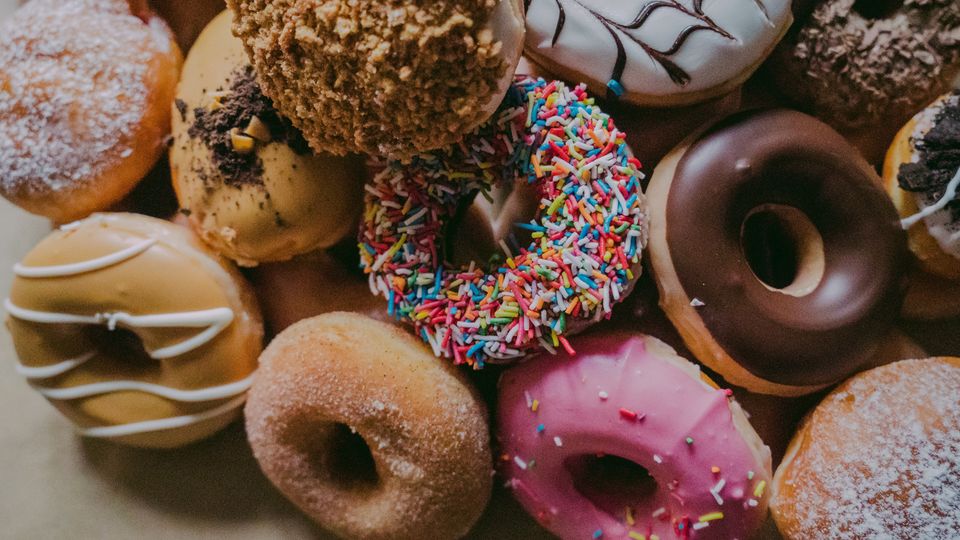Fructose is a natural sugar commonly found in fruits, vegetables, and honey. While it’s generally harmless in these natural sources, the excessive intake of fructose through high-fructose corn syrup (HFCS) in processed foods has raised significant health concerns. Recent studies, including groundbreaking research from Washington University in St. Louis, suggest a potential link between high dietary fructose intake and cancer development. This article delves into the science behind these claims, the mechanisms by which fructose may influence tumor growth, and actionable strategies to reduce fructose consumption.

Understanding Fructose: Natural vs. Processed Sources
What Is Fructose?
Fructose is a monosaccharide, or simple sugar, found naturally in fruits, some vegetables, and honey. When consumed in moderation and as part of whole foods, fructose is accompanied by essential nutrients, fiber, and antioxidants, which mitigate its potential negative effects.
High-Fructose Corn Syrup and Its Risks
High-fructose corn syrup, a common ingredient in sodas, packaged snacks, and baked goods, is a processed sweetener derived from corn starch. Unlike natural sources, HFCS lacks the beneficial nutrients of whole foods and contributes to excessive fructose intake. Prolonged consumption of HFCS has been linked to obesity, type 2 diabetes, fatty liver disease, and an increased risk of cancer.
The Link Between Fructose and Cancer
Research Insights: How Fructose Influences Tumor Growth
Recent studies highlight a troubling connection between high dietary fructose intake and cancer. Researchers at Washington University in St. Louis conducted experiments on animal models of melanoma, breast cancer, and cervical cancer. Their findings revealed that excessive fructose consumption could promote tumor growth by facilitating the production of specific lipids linked to cancer cell replication.
Fructose vs. Glucose: Similarities and Differences
Fructose and glucose share the same atomic composition, yet their structural differences lead to distinct metabolic pathways. Cancer cells are known to have a voracious appetite for glucose, a fact exploited in diagnostic techniques like PET scans. The study posits that cancer cells may also metabolize fructose similarly, contributing to tumor progression.
Fructose, Lipids, and Tumor Development
The Role of Lysophosphatidylcholines (LPCs)
Upon ingestion, fructose undergoes metabolic processing in the liver, resulting in the production of lysophosphatidylcholines (LPCs). These lipids are associated with inflammation and play a critical role in cancer cell division. Tumors rely heavily on lipids to support their rapid growth, and elevated LPC levels in the bloodstream provide a conducive environment for tumor development.
Why Cancer Cells Thrive on Fructose
Unlike most healthy cells, cancer cells divide rapidly, necessitating a substantial intake of nutrients to sustain their growth. Fructose, converted into lipids in the liver, becomes an energy source for these proliferating cells. This metabolic adaptation underscores the importance of dietary patterns in influencing cancer risk.
Processed Foods and Increased Cancer Risk
The Role of Processed Foods in Modern Diets
The modern diet’s reliance on processed foods has led to unprecedented levels of fructose consumption. These foods often contain hidden sugars under various names, contributing to a silent but significant health burden.
Expert Opinions on Fructose and Cancer
Dr. Anton Bilchik, a surgical oncologist and cancer expert, emphasizes the importance of understanding the mechanisms behind fructose’s effects on cancer. He highlights the need for clinical studies to explore how artificial sweeteners and processed sugars influence cancer risk compared to natural sugars from whole foods.
Reducing Fructose Intake: Practical Tips
Prioritize Whole Foods
Opt for fresh fruits, vegetables, and unprocessed foods. These not only provide natural sugars in moderation but also come packed with fiber, vitamins, and minerals that support overall health.
Read Nutrition Labels Carefully
Identify hidden sugars in packaged products. Common aliases include glucose, sucrose, maltose, and HFCS. Avoid items that list these as primary ingredients.
Limit Sugary Beverages and Snacks
Replace sodas and sweetened juices with water, herbal teas, or naturally flavored seltzers. Choose snacks like nuts, seeds, or fresh fruit instead of processed options.
Cook at Home
Preparing meals from scratch allows you to control the ingredients, reducing your intake of added sugars and preservatives.
FAQs About Fructose and Cancer
1. Is fructose in fruits harmful?
No, fructose in fruits is generally safe when consumed in moderation. Whole fruits contain fiber and nutrients that balance the sugar’s effects.
2. How does high-fructose corn syrup differ from natural fructose?
High-fructose corn syrup is a processed sweetener with concentrated fructose levels, often found in sugary drinks and snacks. It lacks the beneficial nutrients found in natural sources.
3. Can avoiding fructose prevent cancer?
While avoiding excessive fructose intake may reduce risk factors, cancer prevention involves a holistic approach, including a balanced diet, regular exercise, and avoiding known carcinogens.
4. Are all processed foods bad for you?
Not all processed foods are harmful, but highly processed items with added sugars and preservatives should be consumed sparingly.
5. What are some healthy alternatives to sugary snacks?
Fresh fruit, unsweetened yogurt, nuts, seeds, and whole-grain crackers are excellent alternatives to sugary, processed snacks.




